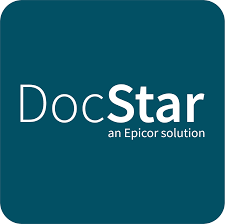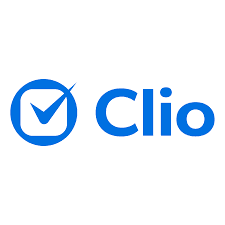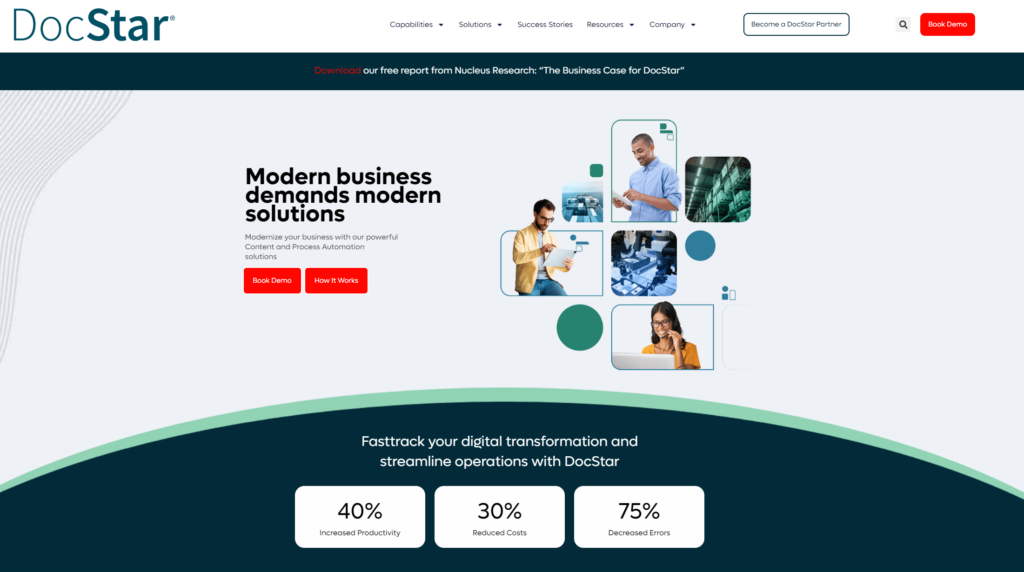Selecting the right document management tool can significantly impact the efficiency and productivity of your organization. In this comprehensive guide, we compare DocStar, known for its robust document management capabilities, with Clio, a specialized tool designed primarily for legal practices. We’ll begin our deep dive by examining how each platform handles document storage and retrieval, a fundamental aspect for any document management system.
DocStar | Clio |
|---|---|
| G2 Score – 3.7 out of 5 stars | G2 Score – 4.6 out of 5 stars |
| TrustRadius Score – 4.7/10 | TrustRadius Score – 7/10 |
Document Storage and Retrieval
Effective document storage and retrieval are critical for any organization, but they are particularly crucial in environments where the volume and sensitivity of documents are high. Let’s explore how DocStar and Clio handle these essential functions.
DocStar: Structured and Secure Document Management
DocStar is designed to provide comprehensive document management solutions that cater to businesses needing advanced storage, retrieval, and workflow capabilities. It is particularly suited for sectors like healthcare, finance, and government, where document control and compliance are critical.
The strength of DocStar in document storage and retrieval lies in its highly structured system that allows for extensive customization and automation. Users can set up detailed indexing and filing rules that make the retrieval process efficient and straightforward. This system is built to handle a large volume of documents and includes powerful search functionalities that allow users to quickly find documents based on a variety of metadata criteria.
Additionally, DocStar offers robust version control and archiving capabilities, ensuring that all document revisions are tracked and that historical data is preserved and accessible. This level of detail is invaluable for organizations that must adhere to strict regulatory requirements regarding document management and retention.
Clio: Streamlined Document Management for Legal Professionals
Clio, while also offering comprehensive document management capabilities, is tailored specifically for the legal industry. It provides a user-friendly platform that integrates document management with other essential functions like case management, billing, and client communication.
In terms of document storage and retrieval, Clio offers a streamlined approach that simplifies the way legal documents and case files are organized and accessed. Its system allows for easy uploading, tagging, and categorizing of documents, which can then be linked directly to specific cases or clients. This integration ensures that all relevant documents are readily accessible from within the case file, reducing the time spent searching for information.
Clio also includes features like full-text search, which allows users to find documents quickly based on content, not just metadata. This feature is particularly useful in a legal setting where the ability to find specific information within documents can significantly impact case outcomes.
Integration Capabilities
A document management system’s ability to integrate smoothly with other business tools and software is crucial for enhancing productivity and maintaining a seamless workflow. Let’s compare the integration capabilities of DocStar and Clio, focusing on how well each system connects with other essential software applications.
DocStar: Robust Integration with Enterprise Systems
DocStar is renowned for its strong integration capabilities, particularly with enterprise resource planning (ERP) systems and other critical business applications. This integration is a significant advantage for organizations that operate within complex software ecosystems and require their document management system to work harmoniously with existing tools.
DocStar’s integration extends to popular platforms like Microsoft Dynamics, SAP, and Oracle, enabling businesses to automate document-driven processes such as invoice processing and human resources management. This deep integration helps streamline operations by automating the flow of information across various systems, reducing manual input, and minimizing errors.
Moreover, DocStar provides API access for custom integrations, offering businesses the flexibility to develop bespoke solutions that meet their specific needs. This level of customization is particularly valuable for industries with unique workflow requirements or those looking to maximize the efficiency of their document management processes.
Clio: Specialized Integration for Legal Services
Clio, tailored specifically for the legal industry, offers integration capabilities that are particularly beneficial for law firms and legal departments. While it may not provide the broad ERP integration capabilities of DocStar, Clio excels in integrating with tools that are essential for legal practice management.
Clio integrates seamlessly with legal-specific applications and general productivity tools, including Microsoft Office 365, Google Workspace, and various legal research tools. These integrations facilitate a more efficient workflow, allowing legal professionals to manage cases, track time, and communicate with clients without leaving the Clio environment.
Additionally, Clio’s open API supports a range of third-party applications, enabling law firms to connect their document management system with other software tools used in their daily operations. This capability allows for a highly customizable setup that can be tailored to the specific needs of a legal practice.

Related: Check out our free SEO suite

Security Features
Security is a critical component of any document management system, especially for organizations handling sensitive or confidential information. Both DocStar and Clio recognize the importance of robust security measures but tailor their features to meet the needs of different industry standards. Let’s delve into how each platform secures documents and data.
DocStar: Enhanced Security for Sensitive Data
DocStar is designed to meet the high-security demands of industries such as healthcare, finance, and government. It provides comprehensive security features that ensure the protection and integrity of documents at every stage of the management process. This includes data encryption both at rest and in transit, using advanced protocols to prevent unauthorized access.
In addition to encryption, DocStar offers detailed access controls, allowing administrators to set specific permissions for each user or group. This granularity ensures that only authorized personnel can access sensitive documents, which is crucial for maintaining compliance with stringent regulatory requirements. Furthermore, DocStar maintains an extensive audit trail for all document activities, providing a clear and trackable record of who accessed or modified documents, which is essential for audits and compliance checks.
Clio: Specialized Security for Legal Environments
Clio, while also providing strong security features, is specifically tailored to meet the needs of the legal industry. It ensures that all client information and case documents are protected with high-level encryption and compliant with legal industry standards, such as those required by the American Bar Association and various regional regulations.
Clio’s security measures include two-factor authentication (2FA) and robust data encryption, ensuring that sensitive client information remains confidential and secure. Additionally, Clio offers customized access permissions, allowing law firms to control which users can view or edit certain documents or cases, enhancing the security and privacy of client data.
Mobile Accessibility and User Experience
In an era where work often happens on the go, mobile accessibility and a seamless user experience are crucial for any document management system. Both DocStar and Clio offer mobile solutions, but they focus on different aspects of user interaction and accessibility. Let’s examine how each platform performs in terms of mobile access and overall user experience.
DocStar: Robust Mobile Functionality for Professional Users
DocStar provides a mobile app designed to extend the functionalities of its desktop platform to mobile devices. This app allows users to access, manage, and interact with documents directly from their smartphones or tablets. While the app is functional and efficient, it is primarily focused on maintaining the comprehensive capabilities of the desktop version, which can sometimes make the mobile interface feel more complex and less intuitive.
The strength of the DocStar mobile app lies in its ability to allow users to handle complex document management tasks on the go. This includes accessing documents, participating in workflows, and even managing security settings. However, the user interface may not be as polished or easy to navigate as some modern mobile apps, focusing more on feature richness than on streamlined design.
Clio: Intuitive and Seamless Mobile Experience
Clio’s mobile app, on the other hand, is designed with a focus on providing a seamless and intuitive user experience, mirroring the simplicity and accessibility of its desktop environment. The app is particularly strong in enabling legal professionals to manage their cases and documents efficiently while away from the office.
With the Clio mobile app, users can easily access case files, document templates, and client communications. The app supports document editing, e-signatures, and time tracking, which are essential features for lawyers managing their practice on the go. The interface is clean and user-friendly, making it easy for new users to adapt quickly without a steep learning curve.
Pricing and Overall Value
Understanding the pricing structure and assessing the overall value provided by a document management system are crucial in ensuring that the solution you choose fits your budget and meets your business needs effectively. Let’s compare the pricing models of DocStar and Clio to see which platform offers better value for your investment.
DocStar: Customizable Pricing for Diverse Needs

DocStar utilizes a pricing model that can be customized based on the specific requirements and scale of an organization. Typically, this involves an upfront cost for software licensing, plus additional fees for customization, integration, and ongoing support. This model allows businesses to tailor the system to their precise needs, whether that involves basic document management or a fully integrated solution for complex workflows.
The overall value of DocStar is evident in its robust features, which are designed for industries requiring detailed document control, compliance, and security. For organizations in sectors such as healthcare, finance, and government, the investment in DocStar can lead to significant returns by enhancing operational efficiencies, ensuring compliance, and improving document security.
Clio: Subscription-Based Pricing Tailored for Legal Professionals

In contrast, Clio offers a subscription-based pricing model, which is straightforward and scales with the size of the legal practice. Clio provides several pricing tiers, each offering different sets of features tailored to the needs of legal professionals, from solo practitioners to larger law firms. This model makes Clio accessible for a range of budgets and practice sizes, and includes essential features like case management, time tracking, and client communication, in addition to document management.
Clio’s value is particularly pronounced in its comprehensive suite of tools designed specifically for the legal market. This specialization ensures that lawyers have access to functionality that directly enhances their ability to manage cases efficiently, maintain client relationships, and handle documents securely—all critical factors for successful legal practice.
Conclusion
In conclusion, when deciding between DocStar and Clio for your document management needs, it’s crucial to consider how each platform aligns with your organizational requirements, budget, and the specific functionalities critical to your operations.
DocStar is ideally suited for larger organizations or those in regulated industries such as healthcare, finance, and government. Its customizable pricing model and robust feature set are designed to handle complex document management challenges, including compliance and detailed workflow customization. This makes DocStar an excellent choice for businesses that require a high degree of control over their document management processes and need a system that can integrate deeply with other enterprise-level software.
Clio, on the other hand, offers a more specialized solution tailored to the needs of legal professionals. With its subscription-based pricing and comprehensive suite of tools that integrate document management with other essential legal practice functions, Clio is perfectly suited for law firms of all sizes. Its user-friendly design and specific focus on legal workflows make it a valuable asset for any legal practice looking to streamline operations and enhance productivity.
Read Next:
- GetResponse vs Zoho Campaigns: The Best Email Marketing Tool for 2024
- AWeber vs ActiveCampaign: The Best Email Marketing Tool
- Constant Contact vs Campaigner: Best Email Marketing Tool
- GetResponse vs Omnisend: The Best Email Marketing Tool for 2024
- AWeber vs Benchmark Email: The Best Email Marketing Tool






















Comments are closed.